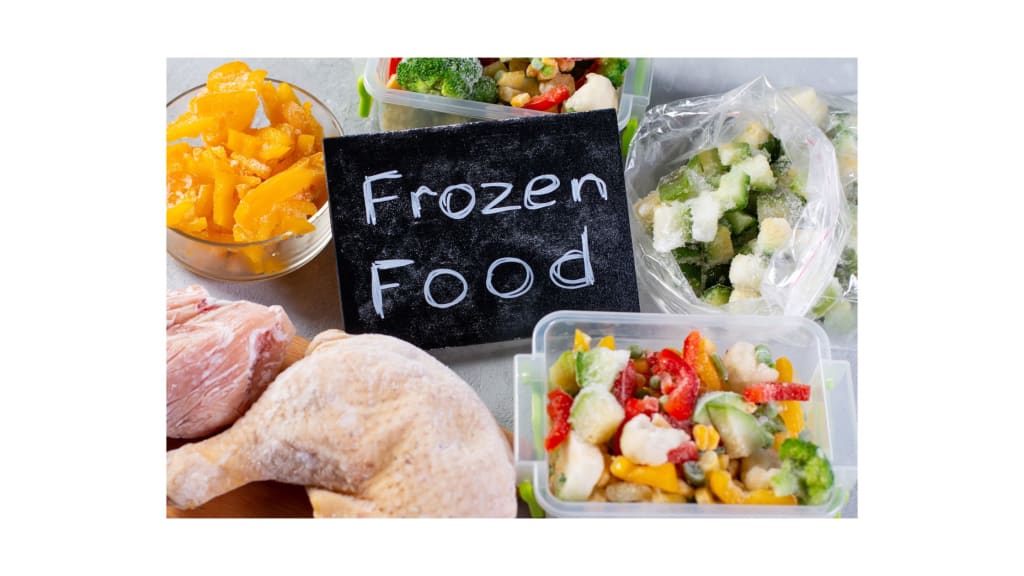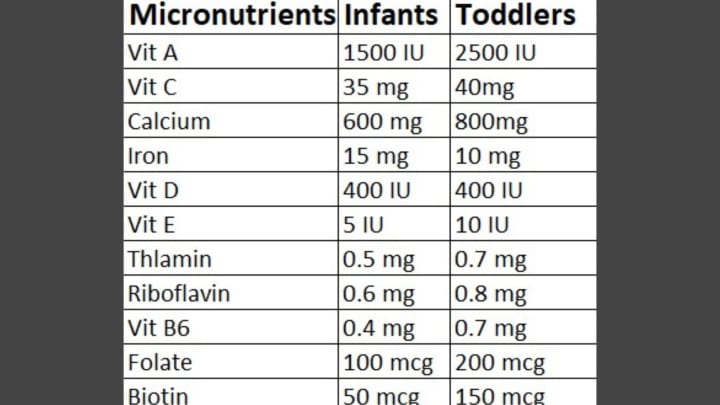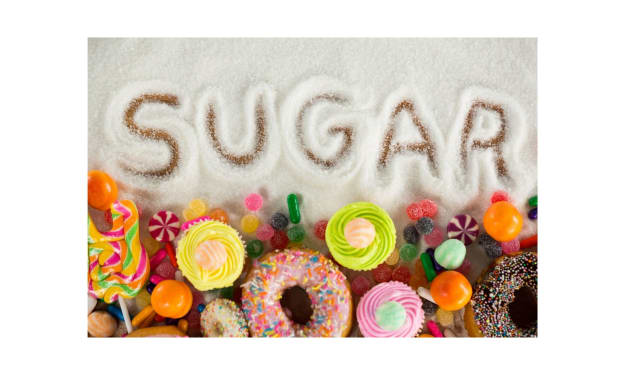5 simple shopping tips for buying Frozen Baby Food
Shopping for healthy frozen baby food can be daunting, but our guide simplifies it.

Read the labels carefully.
Before buying frozen food for your baby, carefully read the labels and look out for ingredients you want to avoid. Look for organic, hormone-free, free-range items as much as possible, and avoid foods containing preservatives, salt, sugar, and artificial flavors. Also, ensure the packaging contains no BPA or other harmful chemicals.
Avoid unnecessary additives and fillers.
Buying processed baby food with added flavors, colors, and preservatives can be tempting. However, these additions to baby food usually only serve a purpose other than extending the shelf life and making it more appealing. Instead, opt for foods that only contain natural ingredients so you can rest assured your little one gets the most nutritious meal possible without any unnecessary additives or fillers.
Here is the list of additives used in packed foods.
Perfluoroalkyl Chemicals – Organic pollutants may be present in fruit and vegetables.
Bisphenols – Used for packaging food containing bottles and cans.
Phthalates – Kind of adhesives and plastics used during the packing process.
Pesticides – Pesticide residue may be found in food items produced from fruit, vegetables and milk.
Perchlorate – is a breakdown product of chlorine disinfectants used in the process of purifying drinking water.
Monosodium Glutamate – Found in sauces, soups, stews and other salty-packed snacks.
Aspartame – Artificial sweetener found in beverages and also in certain vitamin supplements.
Artificial food colorants (AFC) – Found in food and carbonated drinks.
Nitrates and nitrites – Major preservatives found in dried and processed meat, fish and cheese, milk formula, biscuits and other packed snacks.
Buy organic varieties when available.
Here are some tips on how to buy the best organic frozen baby food.
Firstly, always read the ingredient list carefully before purchasing any brand of frozen baby food. Look out for brands that use organic ingredients without any additives or preservatives. It will help ensure your little one gets all the essential nutrients while avoiding harmful chemicals and artificial ingredients.
Additionally, check if the brand uses high-pressure processing (HPP) instead of traditional heat pasteurization methods, as HPP retains more nutrients in the food.
Secondly, consider your baby’s age and developmental stage when selecting frozen food products.
Check for micronutrients, vitamins, and minerals in the ingredients list

What food can be frozen for a baby?
Some popular choices include sweet potatoes, peas, carrots, apples and bananas. It’s important to note that before freezing these foods, they should be cooked thoroughly and pureed to a smooth consistency.
Secondly, meats can also be frozen for baby food. Chicken or turkey is an excellent source of iron and protein, which is ideal for a child’s diet. Beef or lamb can also provide important nutrients such as zinc which helps boost the immune system.
Is it OK to give frozen fruit to your baby?
Frozen baby food is convenient for busy parents who want to provide their little ones with organic and nutritious meals. If you’re considering buying organic frozen baby food, examine the content from the label to ensure it’s made from good ingredients. Some things to look out for will include things like the label’s list.
Firstly, make sure that the product’s main ingredient is what it claims to be. For example, if you’re purchasing blueberry puree, check that blueberries are listed as the first ingredient, not just a small percentage of the overall contents. Also, be cautious of products that contain added sugars or artificial sweeteners, as these can harm your baby’s health.
Secondly, look out for potential allergens, such as dairy, soy or nuts, which could cause adverse reactions in some babies.
Does freezing baby food lose nutrients?
Frozen baby food is a great way to save time and money, while still providing your child with healthy, homemade meals. Some parents wonder if freezing baby food will affect the nutrients of the food, but freezing baby food does not significantly affect the nutritional value. Most nutrients are relatively stable when frozen, including vitamins such as A, C and E and minerals like calcium and iron. However, some vitamins may be lost during the cooking process before freezing.
For example, vitamin C levels can decrease when fruits or vegetables are steamed or boiled before being pureed for freezing. To retain more nutrients, try using raw fruits and veggies instead. It’s important to note that while nutrient loss may occur during the freezing process, it is typically minimal.
What baby foods shouldn’t you freeze?
When it comes to feeding your little one, preparing a large batch of baby food and freezing it for future use can be tempting. However, not all baby foods are suitable for freezing. Some foods can lose their texture or nutritional value when frozen. Here are some types of baby foods that you should avoid freezing.
Firstly, dairy-based products like yogurt or cheese should not be frozen as they tend to change in consistency once thawed.
The same goes for egg-based dishes such as quiches or frittatas, which may become watery and lose their flavor after being frozen.
Another food that doesn’t fare well in the freezer is fruits with high water content, such as melons or citrus, which tend to become mushy and lose their freshness.
One type of food that should never be frozen is fresh fruits and vegetables. Freezing these foods can cause them to become mushy and lose their flavor, which defeats the purpose of feeding your baby healthy produce in the first place.
Instead of freezing fresh fruits and veggies, opt for canned or jarred varieties for babies.
How long can I freeze baby food?
Frozen foods at home can be preserved from 3 months to 6 months. Home-prepared food should be packed properly. If the food is store-bought, check for its date in the package. The shelf life will be higher due to the preservatives added. Additives will not cause issues for infants at the first time. Diseases and disorders will start when infants are often fed additives and preservatives.
What are the risks of freezing food?
The first risk is that freezing can damage the texture and nutrient content of the baby food. When foods are frozen, ice crystals form inside them, which can rupture cell membranes and cause changes in the texture and nutritional value of the food.
Another risk of freezing baby food is contamination. Although freezing can slow down bacteria growth, it does not eliminate all bacteria in the food.
If contaminated baby food is stored in the freezer for too long or at an incorrect temperature, harmful bacteria may grow and cause illness when consumed by babies. Parents should always follow proper hygiene practices to reduce this risk when preparing and storing baby foods.
What is the best baby food to make and freeze?
Making your baby’s food and freezing it is a great way to ensure your baby gets only the freshest ingredients. You can use vegetables, fruits, and meats such as bananas, carrots, peas, squash, lamb, salmon, and even beans when making frozen baby food. Mixing different fruits and vegetables is also an easy way to create healthy frozen combos your baby will enjoy. Avoid adding too much salt or sugar when preparing meals that won’t be eaten immediately.
Your baby will love your preparation
Can babies eat frozen food? Pros and cons
Pros
Frozen food can also be a good way to supplement the diet of a baby who is not eating enough fresh food. It is a great alternative for busy parents. You can prepare and freeze it whenever you have time. Your baby can enjoy a variety of foods at a time.
Cons
The cons of frozen food for babies include that it can be hard to digest and contain high sugar and salt levels. Additives cause health issues at younger ages.





Comments
There are no comments for this story
Be the first to respond and start the conversation.